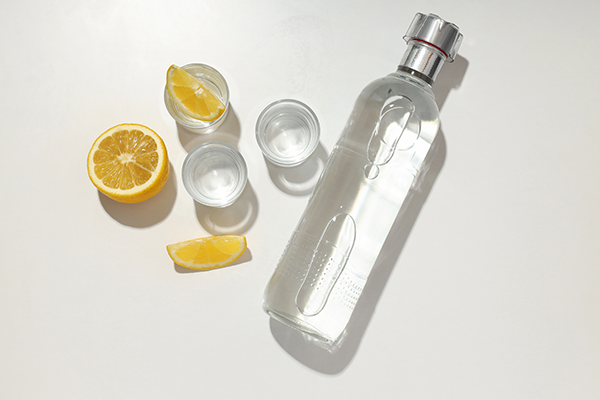In today’s fast-paced society, the temptation to unwind with a drink after a long day at work is ever-present. But what are the risks and benefits associated with after-hours alcohol consumption? It’s a question that many people grapple with as they try to strike a balance between relaxation and responsibility.
Alcohol has long been used as a social lubricant, helping people to relax and lower their inhibitions in social settings. However, excessive alcohol consumption can have serious health consequences, including liver damage, cardiovascular problems, and addiction. It’s important to understand the potential risks before reaching for that after-work drink.
On the flip side, some studies have shown that moderate alcohol consumption may have certain health benefits, such as reducing the risk of heart disease and improving cognitive function. But how much is too much? And at what point does the line between moderation and excess blur?
Need after hours alcohol delivery near me? Explore options for late-night alcohol delivery in your area.
The Dangers of Late-Night Drinking
While drinking alcohol can be a common social activity, especially in the evenings or at night, it is important to be aware of the potential dangers associated with late-night drinking. Consuming alcohol during the late hours of the night can increase the risks of various negative consequences, including:
| 1. | Impaired judgment and decision-making |
| 2. | Increased likelihood of accidents or injuries |
| 3. | Heightened risk of alcohol poisoning |
| 4. | Interference with sleep patterns and overall health |
| 5. | Exacerbation of existing mental health issues |
It is crucial to drink responsibly and be mindful of the potential dangers associated with late-night alcohol consumption. Always have a plan in place for getting home safely and know your limits when it comes to drinking. By being aware of the risks and taking proactive measures, you can enjoy alcohol in a safer and healthier manner.
Understanding the Impact on Your Health
After hours alcohol consumption can have a significant impact on your health. The following are some key ways in which drinking alcohol late at night can affect your well-being:
- Disrupted sleep patterns: Consuming alcohol close to bedtime can disrupt your sleep patterns, leading to a decrease in sleep quality and overall restfulness.
- Increased risk of dehydration: Alcohol is a diuretic, meaning it causes you to urinate more frequently. This can lead to dehydration, especially if you are not drinking enough water.
- Impaired cognitive function: Drinking alcohol late at night can impair your cognitive function, making it difficult to think clearly and make rational decisions.
- Weight gain: Alcohol is high in calories and can contribute to weight gain if consumed in excess, especially late at night when your body’s metabolism is slower.
- Increased risk of accidents: Being under the influence of alcohol late at night can increase your risk of accidents, both at home and while driving.
It is important to be aware of these potential health risks and to consider them before consuming alcohol after hours. Moderation is key in ensuring that you can enjoy a drink without jeopardizing your health.
How Alcohol Can Affect Your Safety
Alcohol consumption can have a significant impact on your safety in various ways. One of the most prominent effects of alcohol is impaired judgment and coordination. When under the influence of alcohol, individuals may make poor decisions, engage in risky behaviors, and have difficulty performing tasks that require focus and precision.
Furthermore, alcohol consumption can also impair your ability to react quickly and effectively in emergency situations. This can increase the likelihood of accidents, injuries, and other dangerous outcomes. It is important to recognize the impact that alcohol can have on your safety and take precautions to avoid putting yourself and others at risk.
In addition, alcohol can also affect your physical health, including your liver function, cardiovascular health, and immune system. Long-term alcohol consumption can contribute to the development of chronic health conditions and increase your risk of serious illnesses.
Overall, it is essential to be mindful of how alcohol consumption can impact your safety and well-being. Making informed decisions about when and how much to drink can help you reduce the risks associated with alcohol consumption and protect your health and safety.
The Benefits of Moderation
Consuming alcohol in moderation can have certain health benefits. Studies have shown that moderate alcohol consumption, such as one drink per day for women and up to two drinks per day for men, is associated with a lower risk of developing cardiovascular diseases, including heart disease and stroke. This is believed to be due to the anti-inflammatory properties of alcohol, as well as its ability to increase levels of “good” cholesterol (HDL). Moderate alcohol consumption has also been linked to a reduced risk of developing type 2 diabetes.
In addition to potential health benefits, consuming alcohol in moderation can also have social benefits. Many social events and gatherings involve alcohol, and moderate consumption can help individuals relax and socialize with others. It can also act as a social lubricant, making it easier for individuals to engage in conversations and form connections with others.
However, it is important to remember that these benefits are only associated with moderate alcohol consumption. Excessive or binge drinking can have serious health consequences, including an increased risk of liver disease, addiction, and accidents. It is always important to drink responsibly and know your limits.
Exploring the Positive Effects on Socialization
After hours alcohol consumption can have a positive impact on socialization. It can help break the ice in social settings and facilitate bonding between individuals. Alcohol can lower inhibitions and increase feelings of relaxation, making it easier for people to engage in conversation and connect with others.
Drinking alcohol in moderation can also enhance social experiences, such as attending social events or gatherings. It can create a sense of camaraderie and shared experiences among individuals, leading to stronger social connections.
- Alcohol consumption can help people feel more confident and outgoing in social situations.
- It can create a more relaxed and enjoyable atmosphere for social interactions.
- Alcohol can be a social lubricant, helping individuals let loose and have fun with others.
Overall, moderate after hours alcohol consumption can have positive effects on socialization by promoting interactions, building relationships, and fostering a sense of community among individuals.
How Alcohol Can Enhance Relaxation and Stress Relief
Alcohol is often consumed in social settings or after a long day at work as a way to relax and unwind. Many people believe that a drink or two can help alleviate stress and anxiety, promoting a sense of calmness and well-being.
| Benefits of Alcohol for Relaxation and Stress Relief | Risks of Excessive Alcohol Consumption |
|---|---|
| 1. Alcohol can act as a depressant, slowing down the central nervous system and promoting relaxation. | 1. Excessive alcohol consumption can lead to addiction and dependence, resulting in a range of negative consequences. |
| 2. Moderate alcohol intake may help some individuals feel more at ease in social situations, reducing inhibitions and boosting confidence. | 2. Alcohol can impair judgment and coordination, increasing the risk of accidents and injuries. |
| 3. Some studies suggest that certain compounds in alcohol may have stress-reducing effects on the brain, temporarily improving mood. | 3. Regular and heavy drinking can have detrimental effects on physical and mental health, including increased risk of cardiovascular diseases and liver damage. |
It is important to note that while alcohol may offer temporary relief from stress and help promote relaxation, relying on it as a coping mechanism can lead to negative long-term consequences. It is crucial to consume alcohol in moderation and seek healthier alternatives for managing stress and anxiety.
Strategies for Responsible After Hours Drinking
Consuming alcohol after hours can have both positive and negative effects on individuals. To ensure that individuals practice responsible after hours drinking, here are some strategies to consider:
- Set Limits: Before heading out for after hours drinks, it is important to set limits on how much alcohol you plan to consume. Stick to these limits to avoid overconsumption.
- Stay Hydrated: Alternating between alcoholic beverages and water can help to stay hydrated and reduce the risk of alcohol-related dehydration.
- Have a Designated Driver: If you plan to consume alcohol, always have a designated driver who will not be drinking to ensure a safe journey home.
- Know Your Limits: Know your tolerance level and be aware of when to stop drinking to avoid negative consequences.
- Eat Before Drinking: Eating a meal before drinking can help to slow down the absorption of alcohol into your system.
- Monitor Your Alcohol Intake: Keep track of how many drinks you have had and be mindful of how alcohol is affecting your body and behavior.
- Be Mindful of Peer Pressure: Don’t feel pressured to drink more than you are comfortable with. It is okay to say no to alcohol.
- Plan Your Transportation: Make arrangements for safe transportation home before drinking to avoid driving under the influence.
- Seek Help if Needed: If you find it difficult to control your alcohol consumption, seek help from a healthcare professional or support group.
Tips for Setting Limits and Knowing When to Stop
1. Pace Yourself: When consuming alcohol after hours, it’s important to pace yourself. Set a limit on the number of drinks you will have and try to stick to it. Sip your drink slowly and make sure to drink plenty of water in between alcoholic beverages.
2. Know Your Limits: Understand your own tolerance levels and know when to stop. If you start to feel lightheaded or dizzy, it’s time to call it a night. Don’t feel pressured to keep up with others who may be drinking at a faster pace.
3. Have a Plan: Before you start drinking, have a plan in place for how you will get home safely. Designate a sober driver, call a cab, or use a ridesharing service to ensure you don’t put yourself or others at risk by driving under the influence.
4. Listen to Your Body: Pay attention to how you are feeling throughout the night. If you start to feel sick or unwell, it’s time to stop drinking altogether. Your health and safety should always be the top priority.
5. Be Mindful of Peer Pressure: Don’t let peer pressure influence your decisions about how much you drink. Stick to your limits and don’t be afraid to say no if you feel uncomfortable or pressured to drink more than you are comfortable with.
6. Seek Help if Needed: If you find that you are struggling to control your alcohol consumption, don’t be afraid to seek help. Talk to a healthcare provider or a mental health professional who can provide support and guidance on how to manage your drinking habits.
Alternative Ways to Wind Down Without Alcohol
While alcohol may be a common way to unwind after a long day, there are many other ways to relax and de-stress without reaching for a drink. Here are some alternative activities to consider:
- Engage in physical exercise, such as yoga, jogging, or dancing, to release endorphins and reduce stress.
- Practice mindfulness or meditation to calm the mind and focus on the present moment.
- Listen to music or read a book to distract yourself and unwind in a peaceful environment.
- Take a warm bath or shower to relax your muscles and promote a sense of well-being.
- Spend time with loved ones, such as family or friends, to socialize and enjoy meaningful connections.
By exploring these alternative ways to wind down without alcohol, you can prioritize your health and well-being while still finding ways to relax and de-stress after a long day.
Question-answer:
What are some of the risks associated with consuming alcohol after hours?
Consuming alcohol after hours can lead to impaired judgement, increased likelihood of accidents, health issues such as liver damage and addiction, and disrupted sleep patterns.
Are there any benefits to consuming alcohol after hours?
Some may argue that consuming alcohol after hours can help relax and unwind after a long day, and can also serve as a social lubricant for social gatherings or events.
How does after hours alcohol consumption affect productivity?
After hours alcohol consumption can lead to decreased productivity the next day due to hangovers, lack of sleep, and impaired cognitive function.
What are some tips for safer alcohol consumption after hours?
Some tips for safer alcohol consumption after hours include drinking in moderation, staying hydrated, eating a balanced meal beforehand, and knowing your limits.


